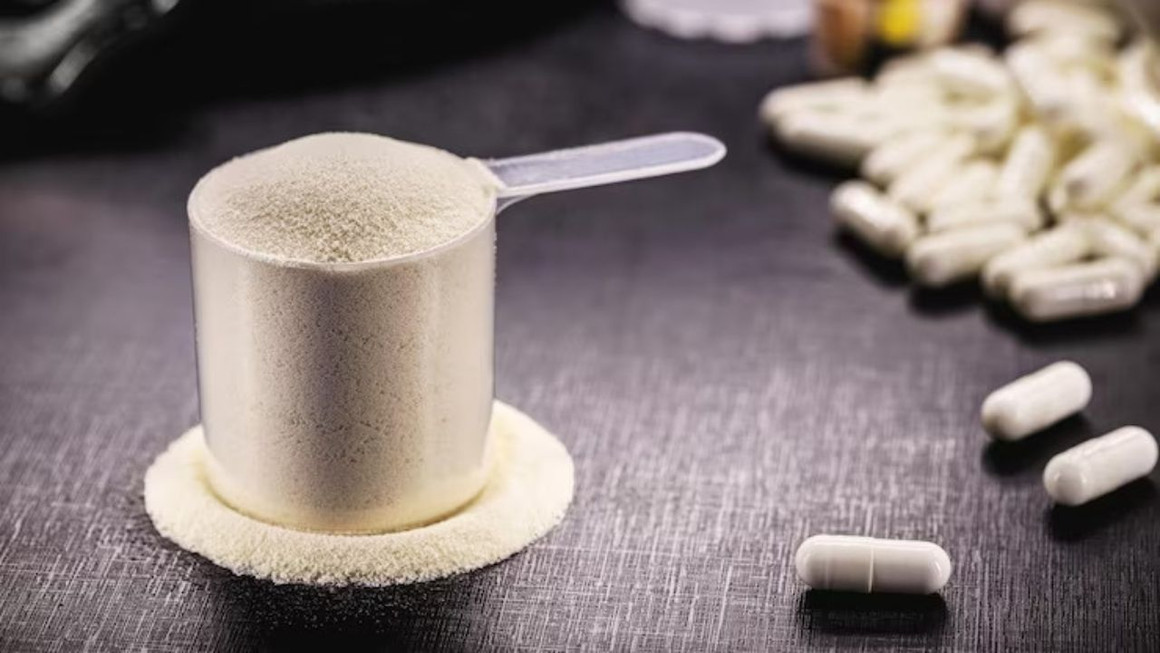What Is Chondroitin Sulfate, What Does It Do?
Posted by InvigoFlex® on 12th Jul 2023
Chondroitin sulfate is a naturally occurring chemical that is important in a variety of functions. It is an important component of connective tissues, especially cartilage, and has received a lot of attention for its potential benefits in joint health and joint health problems. We will look at the structure, functions, health advantages, sources, dose, safety, and potential adverse effects of chondroitin sulfate in this post.
Chondroitin Sulfate Structure and Properties
Chondroitin sulfate is a glycosaminoglycan (GAG) made up of repeating disaccharide units, the most important of which are N-acetylgalactosamine and glucuronic acid. Its chemical structure enables it to produce proteoglycans, which are big molecules that provide tissues with robustness and elasticity. Chondroitin sulfate is found naturally in the extracellular matrix and synovial fluid, where it contributes to cartilage's integrity and cushioning capabilities.
Chondroitin Sulfate Functions and Mechanisms
Proteoglycan with Extracellular Matrix Component:
Chondroitin sulfate binds to core proteins, resulting in the formation of proteoglycans that are essential for cartilage structure and function. These proteoglycans aid in the retention of water within cartilage, hence providing lubrication and shock absorption.
Importance in Cartilage and Joint Health:
Chondroitin sulfate is essential for the health and integrity of cartilage. It inhibits the enzymes that degrade cartilage, decreases inflammation, and increases the creation of collagen and other components required for cartilage repair and regeneration.
Role in the Development and Maintenance of Connective Tissue
Chondroitin sulfate aids in the formation and maintenance of connective tissues such as tendons, ligaments, and blood vessels. It contributes to the structural integrity and appropriate functioning of these tissues.
Influence on Inflammation and Immunological Response
Chondroitin sulfate has anti-inflammatory properties, decreasing inflammatory mediator synthesis and modifying immunological responses. It may help relieve pain and swelling caused by inflammation.
Chondroitin Sulfate's Possible Role in Beyond Physiological Processes
Research suggests that chondroitin sulfate may have consequences beyond joint health, such as improving wound healing, maintaining skin health, and contributing to cardiovascular health. However, further research is required to properly grasp these potential roles.
Chondroitin Sulfate Health Benefits
Assistance with Joint Health
Chondroitin sulfate has been intensively researched for its potential benefits in managing the symptoms of many joint problems. It may aid in the reduction of discomfort, the improvement of joint function, and the slowing of cartilage degeneration. It is frequently used in conjunction with glucosamine to improve efficacy.
Potential Inflammation and Pain Reduction Effects
The anti-inflammatory effects of chondroitin sulfate help to reduce discomfort in a variety of inflammatory disorders. It may aid in the relief of joint pain, edema, and stiffness caused by different joint problems.
Tissue Repair and Regeneration
Chondroitin sulfate stimulates the creation of new matrix components, which aids in the repair and regeneration of injured cartilage and other connective tissues. It helps to restore joint function and mobility.
Potential Cardiovascular Health Benefits
Preliminary research indicates that chondroitin sulfate may have cardiovascular advantages by lowering the risk of atherosclerosis, enhancing blood vessel flexibility, and decreasing blood clot formation. More research, however, is required to confirm these effects conclusively.
Other Emerging Research Areas and Potential Benefits
Scientists are investigating the potential role of chondroitin sulfate in a variety of areas, including skin health, ocular health, and neurological problems. While the findings are encouraging, more research is needed to evaluate these potential advantages.
Chondroitin Sulfate Sources and Dosage
Chondroitin Sulfate Food Sources
Chondroitin sulfate can be gained from food sources such as animal cartilage and bone broth. However, when compared to chondroitin supplements like Invigoflex CS, the content of chondroitin sulfate in these sources is rather modest.
Chondroitin sulfate is routinely accessible as an oral supplement, sometimes available in the form of glucosamine and chondroitin supplements like Invigoflex AMPM and other joint-supporting substances. It's also available as a topical gel or cream for more localized use.
Dosage and Usage Considerations
The recommended dosage of chondroitin sulfate varies according to the specific condition and individual needs. It is usually given orally in doses of 800 to 1,200 mg per day. To discover the proper dosage and usage guidelines, consult with a healthcare expert.

Chondroitin Sulfate Safety and Side Effects
GRAS (Generally Recognized as Safe) Chondroitin sulfate is usually regarded as safe for most people when used as advised. It has been well-researched, and no major side effects have been documented.
Common Adverse Reactions and Precautions:
Some people may experience mild gastrointestinal symptoms such as nausea, diarrhea, or stomach discomfort. Vegetarians should take caution because chondroitin sulfate supplements are frequently obtained from shark and bovine cartilage.
Potential Medications or Medical Conditions Interactions
Chondroitin sulfate may interact with some medications, particularly blood thinners. Before beginning chondroitin sulfate supplementation, individuals with bleeding issues or taking anticoagulant drugs should see their healthcare provider.
Conclusion
Chondroitin sulfate is an important chemical with numerous functions and possible health advantages. Its role in supporting joint health, managing symptoms of different joint conditions, and stimulating tissue healing has made it a popular choice for people looking for natural solutions to joint problems. More research is needed to investigate its potential applications and better understand its mechanisms of action. Before beginning chondroitin sulfate administration, like with any dietary supplement, visit a healthcare expert to verify correct consumption and to identify the most appropriate dosage for individual needs.
Disclaimer: Information provided in this content is only for educational purposes and can not substitute any professional medical expert. Any supplement mentioned in this post is not intended to diagnose, cure, treat or help to treat any medical disease. If you are facing any kind of inflammation, joint pain, joint stiffness, or any other joint problem, it is highly recommended to consult with a professional healthcare expert.
References:
1. https://www.sciencedirect.com/science/article/pii/S1063458408002021
2. https://www.peacehealth.org/medical-topics/id/hn-2828008
3. https://pubmed.ncbi.nlm.nih.gov/9743814/


